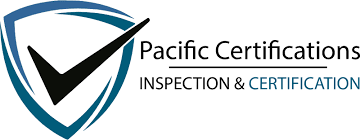ISO 22000: Safeguarding Your Business and Customers through Food Safety Standards

Introduction
In an era where food safety and quality are not just regulatory requirements but also critical to business success and consumer trust, ISO 22000 stands out as a beacon of best practice for food safety management systems (FSMS).
This globally recognized standard provides a robust framework for any organization in the food chain to demonstrate its commitment to food safety. By implementing ISO 22000, businesses can ensure the safety of their food products, safeguarding both their customers and their brand reputation.
Understanding ISO 22000
ISO 22000 is designed to address the delicate balance between controlling food safety hazards and providing safe food products to consumers. It applies to all organizations in the food chain, regardless of their size or complexity. This inclusivity makes it a versatile standard, applicable from farm to fork, covering all processes that impact the safety of the end product.
The standard combines key elements to ensure food safety along the food chain, including interactive communication, system management, prerequisite programs, and HACCP principles. This holistic approach ensures that food safety is managed systematically and transparently, promoting international trade by increasing food safety assurance and customer satisfaction.
Benefits of Implementing ISO 22000
Enhanced Food Safety:
ISO 22000 provides methodologies and tools for identifying, preventing, and reducing food safety hazards, contributing to the overall health and safety of consumers.
Increased Customer Trust:
Certification to ISO 22000 demonstrates a commitment to food safety, building customer confidence and satisfaction.
Improved Risk Management:
Through its systematic approach, ISO 22000 helps identify, assess, and control food safety risks, thereby reducing the likelihood of food safety incidents.
Regulatory Compliance:
Implementing ISO 22000 can assist businesses in meeting legal and regulatory requirements related to food safety, avoiding costly legal issues and penalties.
Market Access:
ISO 22000 certification is recognized globally, facilitating access to new markets and customers by meeting international food safety standards.
Operational Efficiency:
By integrating prerequisite programs (PRPs) and the HACCP plan with the overall management system processes, organizations can achieve more efficient resource use, reducing waste and improving profitability.
Implementing ISO 22000 in Your Business
The implementation of ISO 22000 requires a systematic approach, starting with a gap analysis to identify the current state of your food safety management system compared to ISO 22000 requirements.
Developing a project plan, engaging top management, and training your team are crucial steps in the implementation process. Additionally, organizations must develop documentation, control food safety hazards, and continuously improve their FSMS to maintain compliance with the standard.
Certification Process
The certification process involves a detailed audit by a third-party certification body. This audit assesses the organization's compliance with ISO 22000 requirements, including the effectiveness of its FSMS. Upon successful completion of the audit, the organization is awarded the ISO 22000 certification, signifying its adherence to best practices in food safety management.
Conclusion
In conclusion, ISO 22000 is more than just a standard; it is a commitment to food safety, quality, and consumer protection. Implementing ISO 22000 can transform your food safety management practices, driving business excellence and fostering trust among consumers and stakeholders alike.
By embracing ISO 22000, businesses not only safeguard their customers but also position themselves as leaders in the global food market.
Pacific Certifications is accredited by ABIS, in case you need support with ISO certification for your business, please contact us at [email protected] or +91-8595603096.
Contact Us
If you need support with ISO 22000 certification, contact us at [email protected].
Read More at: Blogs by Pacific Certifications

